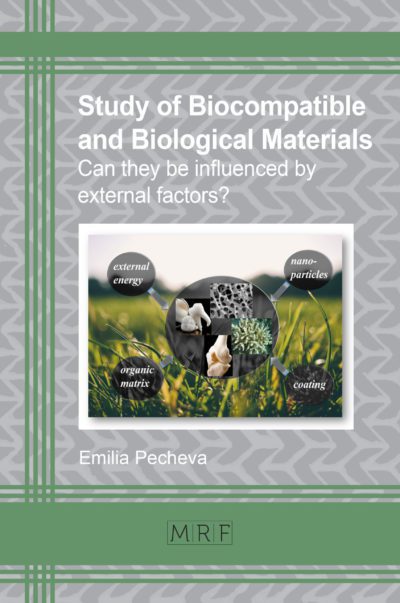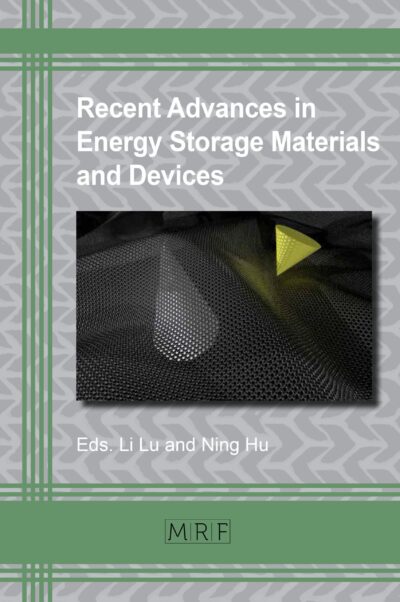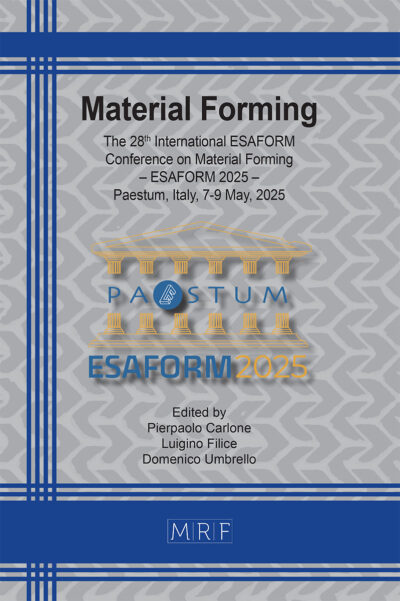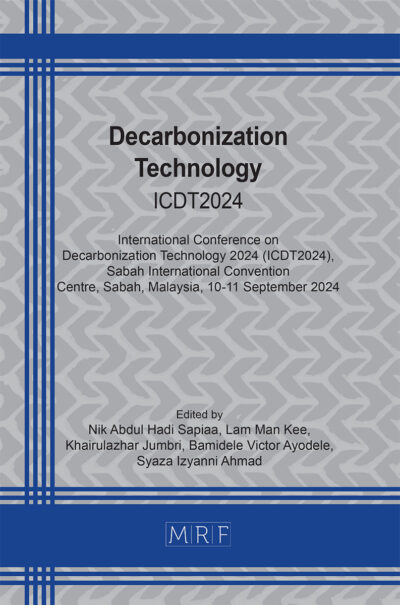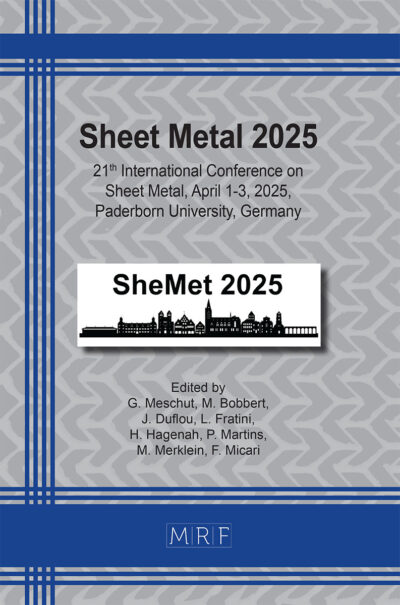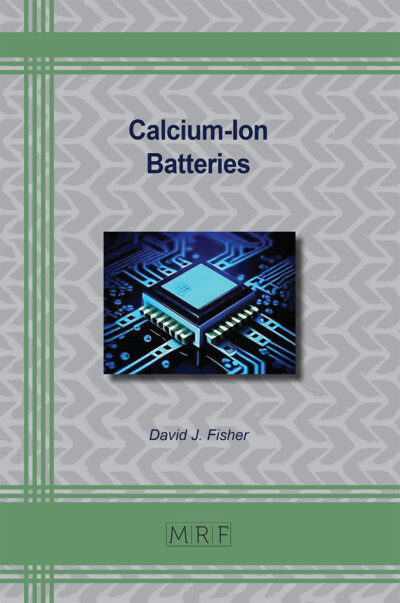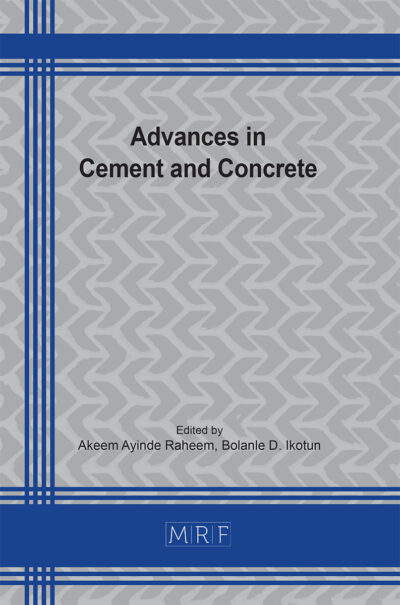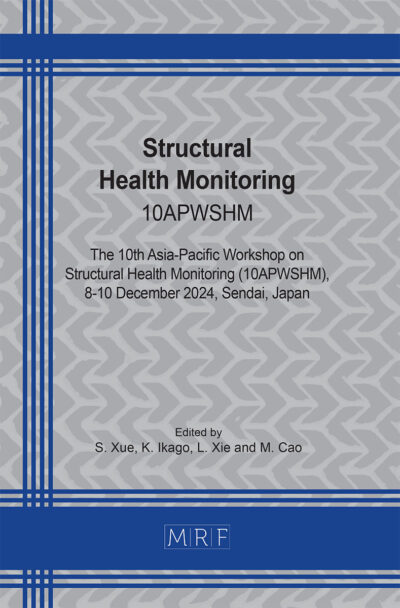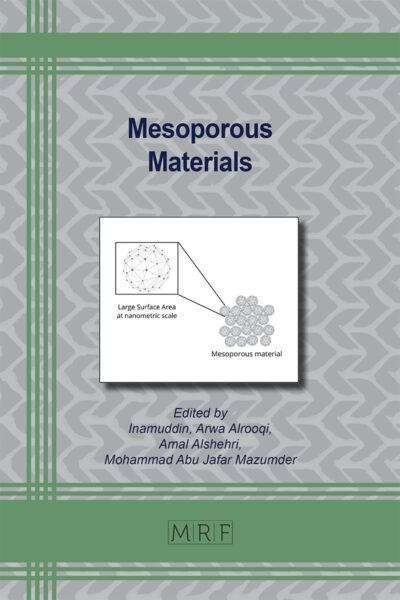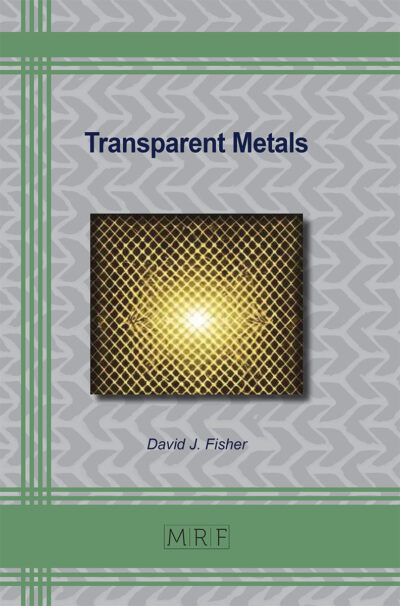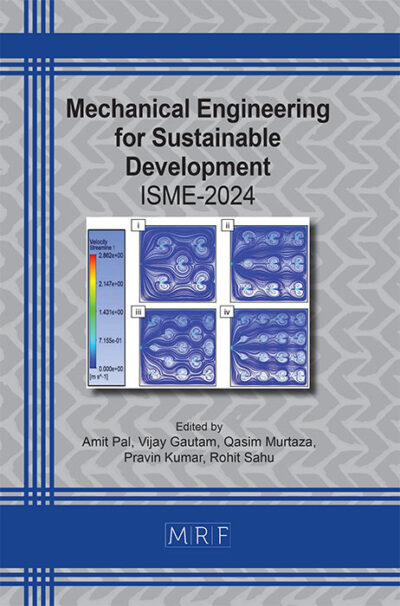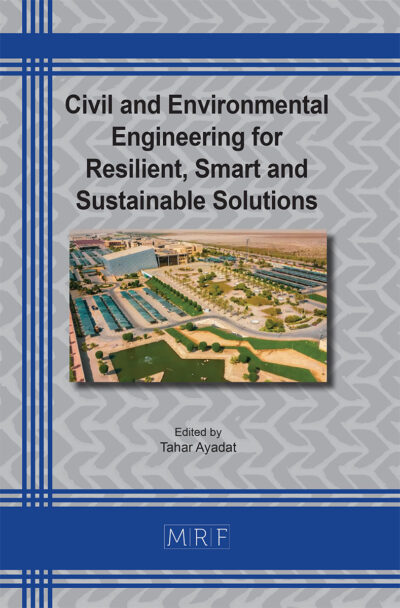Photocatalytic Nanomaterials for Environmental Applications
Eds. Rajesh J. Tayade, Vimal Gandhi
Materials Research Foundations Volume 27
Publication Date 2018, 486 pages
Print ISBN 978-1-945291-58-6 (release date February 25th, 2018)
ePDF ISBN 978-1-945291-59-3
DOI: 10.21741/9781945291593
Photocatalytic nanomaterials have a great potential in such applications as reduction of carbon dioxide and degradation of various pollutants. They are equally important in the production and storage of energy, e.g. in the conversion of solar energy to electricity, and the production of hydrogen in photoelectrochemical cells.
Research on synthesis, characterization and specific applications is reported for titanium oxide and a number of other promising catalysts, such as silver phosphate, cerium oxide, zinc oxide and zinc sulfide.
Keywords
Photocatalytic Nanomaterials, Nanocomposites, Solar Energy Conversion, Carbon Dioxide Reduction, Hydrogen Generation, Degradation of Pollutants, Titanium Oxide, Silver Phosphate, Cerium Oxide, Zinc Oxide, Zinc Sulfide
TiO2 Nanomaterials a Future Prospect
N.V. Sajith, B.N. Soumya, J. Sheethu, P. Pradeepan
TiO2-High Surface Area Materials Based Composite Photocatalytic Nanomaterials for Degradation of Pollutants: A Review
M. Thomas, T.S. Natarajan
Preparation, Characterization and Applications of Visible Light Responsive Photocatalytic Materials
A. Pandey, S. Kalal, N. Salvi, C. Ameta, R. Ameta, P.B. Punjabi
Enhanced Photocatalytic Activity of TiO2 Supported on Different Carbon Allotropes for Degradation of Pharmaceutical Organic Compounds
R.J. Tayade, W.K. Jo
Effect of TiO2 Nanotube Calcination Temperature and Oxygen Pressure to Photocatalytic Oxidation of Phenol
F.F. Orudzhev, A.B. Isaev, N.N. Shabanov
Understanding Reaction Mechanism in Photon-Assisted Reduction of Carbon Dioxide
N. Hariprasad, B. Viswanathan, K.R. Krishnamurthy, M.V. Harindranathan Nair
Photo-Electrochemical Reduction of CO2 to Solar Fuel: A Review
K.J. Shah, S.Y. Pan, V. Gandhi, P.C. Chiang
‘Surface-Modification’ and ‘Composite-Engineering’ of Metal Chalcogenide Electrodes for Solar Hydrogen Production
A. Pareek, P.H. Borse
Enhanced Hydrogen Storage Properties of Hydrothermally Synthesized TiO2 Nanotube-Multiwall Carbon Nanotube Nanocomposite
M.C. Raj, T.S. Natarajan, R.J. Tayade, H.C. Bajaj
Silver Phosphate Based Photocatalysis: A Brief Review from Fundamentals to Applications
A. Samal, A. Baral, D.P. Das
Shape-Control Synthesis and Photocatalytic Applications of CeO2 to Remediate Organic Pollutant Containing Wastewater: A Review
K.J. Shah, P.C. Chang
Synthesis, Characterization and Photocatalytic Study of Sm3+ Doped Mesoporous CeO2 Nanoparticles
N.V. Sajith, J. Sheethu, B.N. Soumya, P. Pradeepan
Enhancing Semiconductor-Photocatalytic Organic Transformation through Interparticle Charge Transfer
C. Karunakaran, S. Karuthapandian
Recent Developments in Cu2ZnSnS4 (CZTS) Preparation, Optimization and its Application in Solar Cell Development and Photocatalytic Applications
S.B. Patel, J.V. Gohel
Modeling and Optimization of Photocatalytic Degradation Process of 4-Chlorophenol using Response Surface Methodology (RSM) and Artificial Neural Network (ANN)
P.S. Patel, V. Gandhi, M.P. Shah, T.S. Natarajan, K. Natarajan, R.J. Tayade
Role of Ultrasound in the Synthesis of Nanoparticles and Remediation of Environmental Pollutants
Pankaj, S. Sahu, S. Misra, H. Srivastava
paperback flyer eBook flyer
https://en.wikipedia.org/wiki/Photocatalysis
ProtoView by Ringgold Clean Data
Chemists, materials scientists, and related researchers review recent developments in applying photocatalytic nanomaterials to environmental problems—both solving existing problems and not creating new ones. Their topics include titania nanomaterials as a future prospect, the enhanced photocatalytic activity of titania supported on different carbon allotropes for degrading pharmaceutical organic compounds, surface-modification and composite engineering metal chalcogenide electrodes for solar hydrogen production, photocatalysis based on silver phosphate: a brief review from fundamentals to applications, and modeling and optimizing the photocatalytic degradation process of 4-chlorophenol using response surface methodology and artificial neural networks. Annotation ©2018 Ringgold Inc. Portland, OR (protoview.com)
Ringgold Keywords
Photocatalytic nanomaterials, Environmental applications, Catalytic chemistry, Materials science, Titania, Photocatalytic degradation






